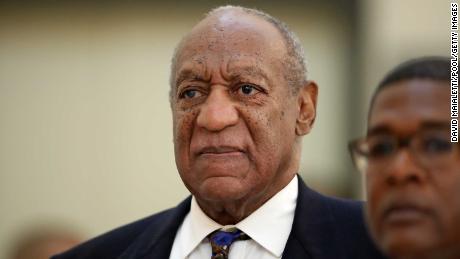Stunning decision reverses the first high-profile celebrity criminal trial of #MeToo era
The panel of Pennsylvania State Supreme Court judges said in their opinion released Wednesday that when former Montgomery County District Attorney Bruce Castor investigated allegations of drugging and rape against Cosby in 2005, the prosecutor’s decision to not prosecute him in return for his deposition in a civil case was ultimately used against him at trial.
“In light of these circumstances, the subsequent decision by successor D.A.s to prosecute Cosby violated Cosby’s due process rights,” the judges wrote.
The stunning decision in the case of the man once known as “America’s Dad” reverses what was the first high-profile celebrity criminal trial of the #MeToo era.
For the victims who sought closure in the resolution of the case, the decision represented “a slap in the face” in the words of Lisa Bloom, the attorney for three accusers.
Bloom said she thinks it could be “a very hard day” for all the women who accused him of sexual assault.
“I want to thank the Supreme Court who saw the light and saw the truth,” Cosby’s family said in a statement released by their press representative, Andrew Wyatt.
Wyatt he was at the prison to pick Cosby up and take him his Pennsylvania home.
“Mr. Cosby was originally given a deal by Bruce Castor in which he was granted immunity. He gave up his fifth amendment rights in hopes that he would get back to work, back to life. And he always showed up for any legal matters and questions on his own accord. Charges should never have been brought against Mr. Cosby,” the statement said.
“I want to thank the attorneys who successfully argued his appeal and especially Mrs. Cosby who stood strong and was here for Mr. Cosby every step of the way and supported every idea and strategy from the attorneys and the team and she always knew that Mr. Cosby was innocent.”
Cosby “has been released” from prison, Pennsylvania Department Of Corrections spokesperson Maria Bivens said Wednesday afternoon.
The letter said Cosby had to “participate in and complete additional institutional programs.” The board cited Cosby’s “failure to develop a parole release plan” and a “negative recommendation by the Department of Corrections” as factors that contributed to the decision.
This story is breaking and being updated.
![]()



